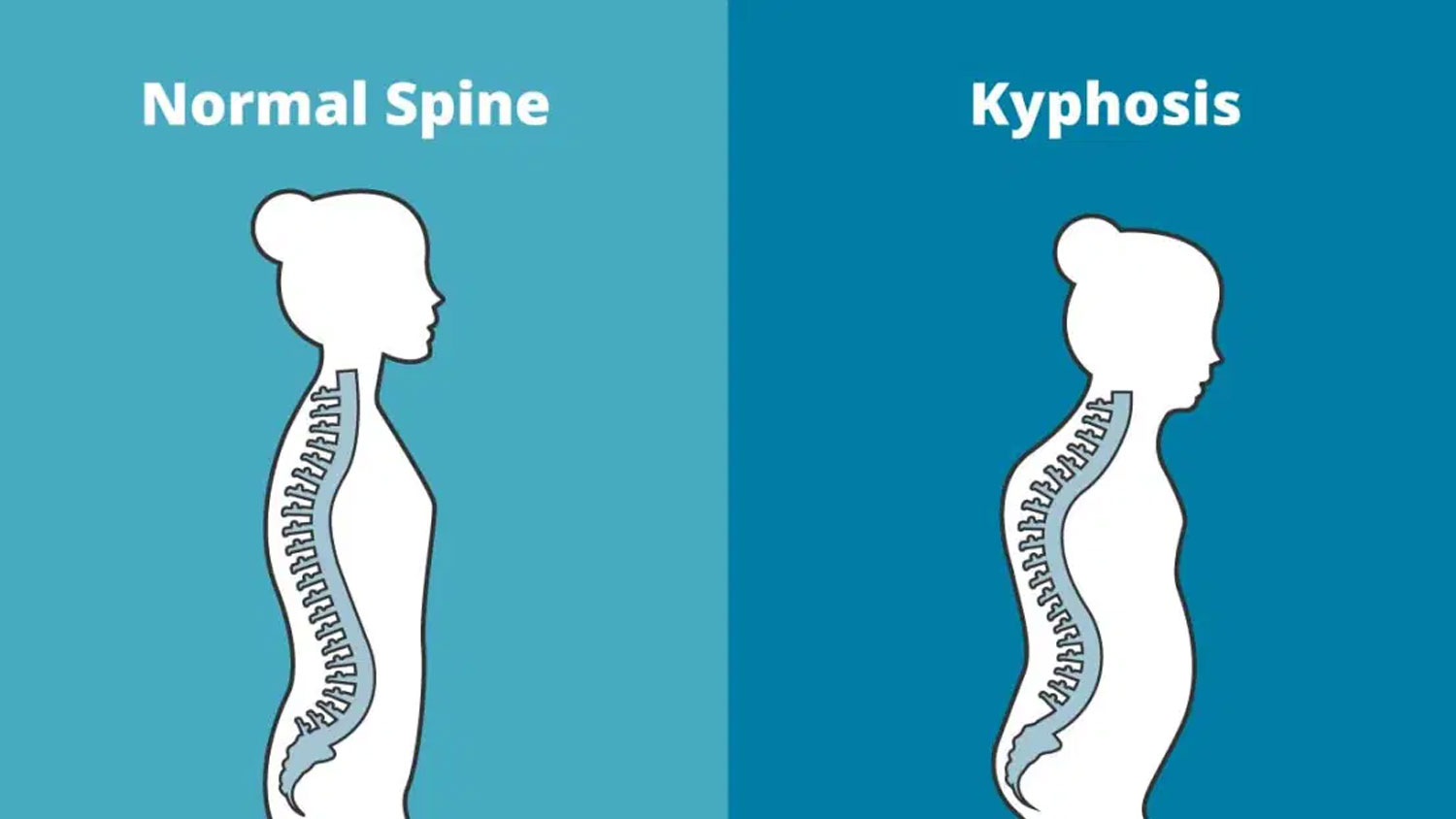Kyphosis is a disorder related to upper spine. It is commonly known as roundback — more severe cases of kyphosis are refered to as hunchback in common tongue. Kyphosis is the abnormal rounding of the upper spine caused due to an excessive curvature in the spine. People with kyphosis look hunched or slouching as their spine is curved outwards more than it should. In this article, we will discuss this spinal disorder in detail. This article will inform you about the meaning, type, symptoms, and treatment of Kyphosis. Also we will see Kyphosis as a disability.
Causes of Kyphosis
Kyphosis can occur at any age though it most commonly occurs in adolescents or in older age. Adolescents are at risk of Postural Kyphosis caused due to poor posture while older people may get develop Kyphosis due to weakening of bones. However, there are many other potential causes of Kyphosis, including –
- Aging – Older people are at risk of developing Kyphosis especially if their posture is not right.
- Weakening of muscles in the upper back – If the muscles of the upper back are weakened the risk of Kyphosis increases.
- Scheuermann’s Disease – The disease occurs in children and has no known cause.
- Bone degeneration diseases – Disease like arthritis that causes degeneration of the bone also increases the risk of Kyphosis.
- Loss of bone strength – The risk of Kyphosis increases with loss of bone strength caused due to aging or diseases like Osteoporosis.
- Slip Discs
- Injury to the spines
- Conditions like scoliosis or spinal curvature
Apart from the above mentioned common causes, Kyphosis may also be caused due to the following reasons –
- Birth defects like Spina Bifida
- Infection to the spine
- Tumors
- Diseases of connective tissues
- Paget disease
- Polio
- Muscular Dystrophy

Complications caused due to Kyphosis
Kyphosis does not exhibit many signs or symptoms. Here are the signs, symptoms, and complications you may notice while developing Kyphosis.
- Hunchback or Rounded back – When Kyphosis develops and becomes visible you can notice hunchback. The size of the hunchback depends on the degree of spinal curve that occurs due to Kyphosis.
- Back Pain – Not all people who develop Kyphosis experience pain but some of them do. Normally adolescents experience back pain indicating the development of Kyphosis.
- Stiffness – A few people may also experience stiffness along with back pain.
- Breathing Difficulty – Again, this is not a symptom experienced by everyone with Kyphosis. People with a severe degree of Kyphosis may experience difficulty in breathing.
- Digestive Problems – Severe Kyphosis may compress the digestive tract and as a result, the person may experience some digestive issues.
Types of Kyphosis
Based on the cause, Kyphosis can be of different kinds. The treatment of the disorder is also dependent on the cause. Listed below are some of the most common types of Kyphosis.
1. Osteoporosis-related Kyphosis
This is the Kyphosis caused due to Osteoporosis and generally affects older women though it occurs in males too. Osteoporosis weakens bones and causes vertebral fractures. The treatment in this condition is focused on treating osteoporosis to prevent further damage.
2. Congenital Kyphosis
This is the Kyphosis found in infants and young children due to malformation of the spine during the fetal stage. Normally surgery is done to correct the deformity.
3. Degenerative Kyphosis
This is the form of Kyphosis caused due to wear and tear of the spine over time. This may be caused due to ageing but normally there are some underlying causes like spinal arthritis that increases the speed of wear and tear. Medication for pain, exercise, and physical therapies are typically used for treatment. In rare cases, surgery too is an option.
4. Neuromuscular Kyphosis
This type of Kyphosis is typical for children with neuromuscular disorders like Cerebral Palsy, Muscular Dystrophy, Spina Bifida, etc. Surgery may be an option depending on the exact condition.
5. Nutritional Kyphosis
This Kyphosis is caused due to the deficiency of certain vitamins like Vitamin D during childhood.
6. Postural Kyphosis
As the name suggests, this Kyphosis develops due to poor posture and slouching. This Kyphosis, especially in the early stages, can be corrected with physical exercise for strengthening abdominal and back muscles.
7. Scheuermann’s Kyphosis
No exact reason is known for this type of Kyphosis. Abnormal growth of the spine and discs is noted in this condition. Persons with Scheuermann’s Kyphosis typically have mild scoliosis. Males are more likely to get this as compared to females.
8. Traumatic Kyphosis
This Kyphosis occurs due to misalignment of the spine during the healing of spinal fracture or injury to supporting ligaments of the spine.
9. Iatrogenic Kyphosis
This Kyphosis develops as a complication after spinal surgery such as the surgery to remove a tumor of the spine.
Is Kyphosis Considered a Disability?
Kyphosis, all around the globe, is typically not considered a disability. It is because Kyphosis alone rarely puts a person in disabling condition. Generally, there are other spinal conditions that in the combination of Kyphosis, put a person in disabling condition. Normally, it is the other conditions that qualify the person for disability insurance and other benefits, where it is provided.
Therefore, if you’re finding Kyphosis a disabiling condition, you should see your doctor and find out whether there are other underlying causes. Very severe cases of Kyphosis may even be considered a disability depending on assessment by the authorities.
Use the citation below to add this article to your bibliography
"Is Kyphosis a Disability? What are its Symptoms and Causes?." Wecapable.com. Web. July 27, 2024. <https://wecapable.com/kyphosis-disability-causes-symptoms/>
Wecapable.com, "Is Kyphosis a Disability? What are its Symptoms and Causes?." Accessed July 27, 2024. https://wecapable.com/kyphosis-disability-causes-symptoms/
"Is Kyphosis a Disability? What are its Symptoms and Causes?." (n.d.). Wecapable.com. Retrieved July 27, 2024 from https://wecapable.com/kyphosis-disability-causes-symptoms/

Leave a Reply